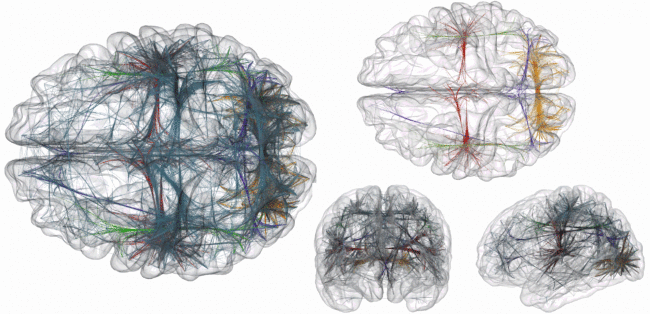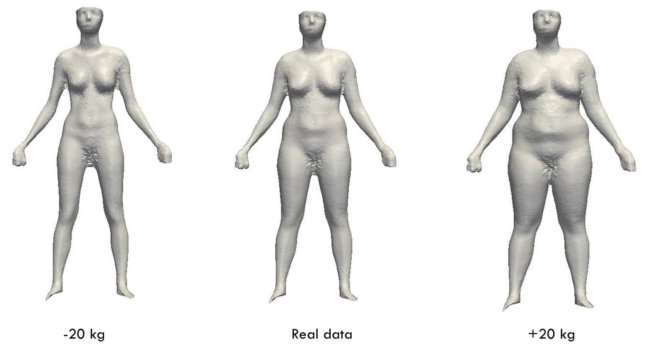
Imagine: you Wake up for work, eat Breakfast with his wife, and then say goodbye. This is your normal working day. It has, however, something unusual: your lover has been dead for years. You didn’t eat Breakfast with his wife, but rather with its simulation. So what? This simulation living in a virtual environment, which can be obtained with the help of a device type Oculus Rift. Digital funeral Agency has captured and analyzed a bunch of data about your wife or husband to create a digital likeness. His (or her) voice, gait, features and mannerisms, the lilt of laughter, exactly, almost perfectly corresponds to the original. Spending time with your digital reborn husband became a part of your daily routine.
Death is often seen as the end of all meanings, the end of life experience. Perhaps it will not always. Even if the dead can no longer interact with us, we would be able to interact with their simulation. It is the death, prompting researchers to work on similar projects.
Two hundred years ago, people were not able to even look at a photograph of his dear departed friend, and a few decades ago the same could be said about the videos. However, very soon, the simulation will create an exact copy of those who died so we could continue to interact with them as though they continue to live. Because new technologies combine to make modeling of the dead part of our lives, this opportunity ceases to be a lot of strict science fiction.
With the help of smartphones, advances in computing and massive collections of online data, it is possible to obtain a sufficiently accurate picture of human behavior. This kind of dataset will be the basis for creating simulations of the deceased. People have a natural tendency to ascribe to the object — and personality — human traits, therefore, to convince the person of the spirit of the model will be easy. Remember Eliza, the computer program from a few lines of code, created in the 1960-ies, which could convince people that they talk with the therapist. Since bots are much more clever and sophisticated.
Immediately should specify that the simulation will never be as rich in emotions as real. But the chess program will not play in the style of world champion. Originally, before IBM’s Deep Blue did not aim to conduct an elegant game to defeat the greatest chess grandmaster in the case were put complicated and straightforward algorithms.
If our hypothetical simulation will be able to pass the Turing test, we will be able to “recreate” a dead man. Don’t worry about attributing intelligence or consciousness software. If its sole purpose would be to communicate with a live person, the metaphysics of personal identity will have no value. Will there be a soul of this system? Consciousness? It doesn’t matter and distracts us from trying to create a model. Not necessarily compel the dead to survive life enough to make it to share their experiences.
Simulation can be considered as the next step in the evolution of bereavement. People write words of praise, build memorials, tombs or just put a photograph on the bedside table — in different cultures different types of mourning, mourning, mourning and mourning. In the case of live simulation will not be permanently cut off from the dead.

Also, such a simulation will change our attitude to life. Imagine that you do not have time to say goodbye forever (that is, died). The death of a friend will be met with heavy sorrow and deep sadness, but the simulation will allow you to keep a piece of it next to — or even more. You will be able to laugh with her, to remember the funny moments of life, or to tell what to say never mind.
At the same time, the world in which you freely interact with idealized models of others, can be detrimental to the relations of the real world. Why interact with your cranky uncle in real life when you can interact with an idealized and much more fun version of him in the digital world? In the end, bots can be disabled, and the annoying features removed. Why worry about the living, if the dead will provide comfort and personality, adapted to our whims?
Can show new and unexpected behaviors. Perhaps simulation will allow people to carry a grudge even after death, continue to insult and blame a bot that is at arm’s length. Alternatively, you could accelerate the demise of another person so that after his death to create a more enjoyable version. However, in this case it will be not a man but a simulacrum.
If we don’t start discussing the possibility of creating a simulation now, they will be imposed on us when we’re not ready for them. The road will be full of moral dilemmas and questions about the human condition. And soon the line that divides the living and the dead becomes blurred.
If we can return the dead to life?
Ilya Hel